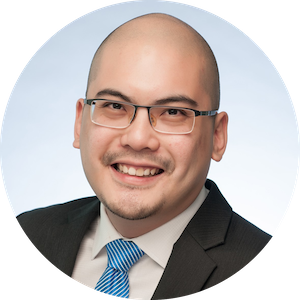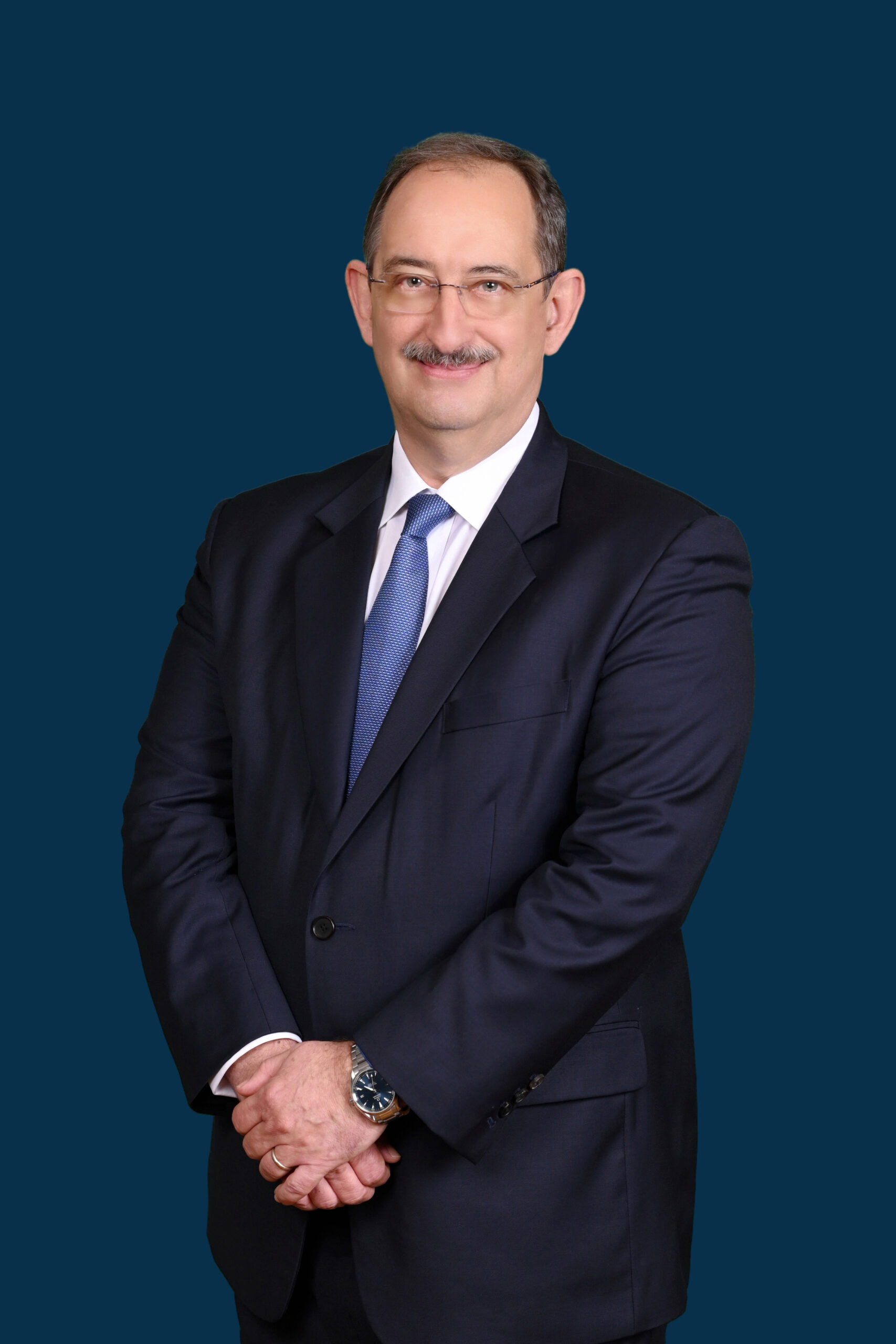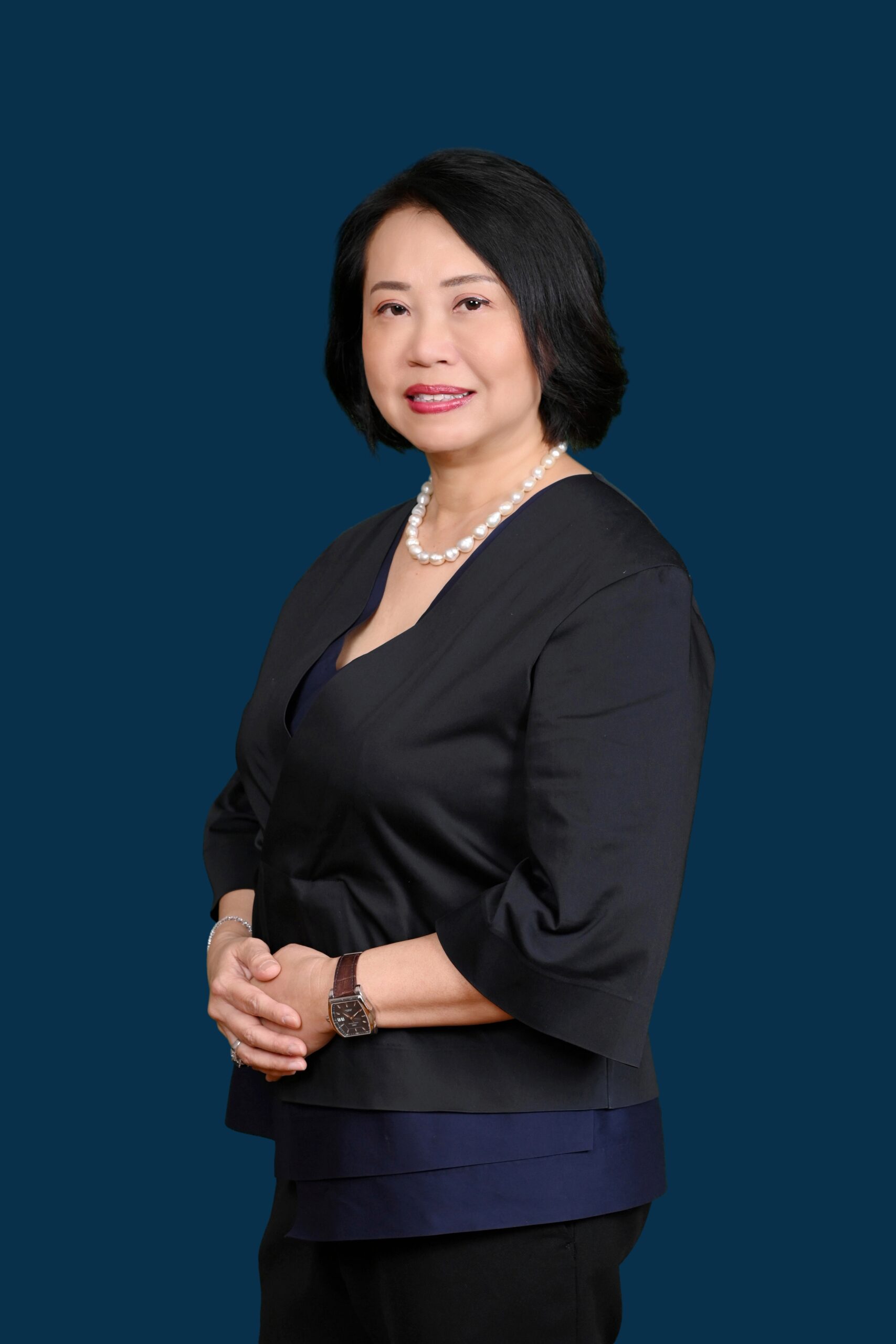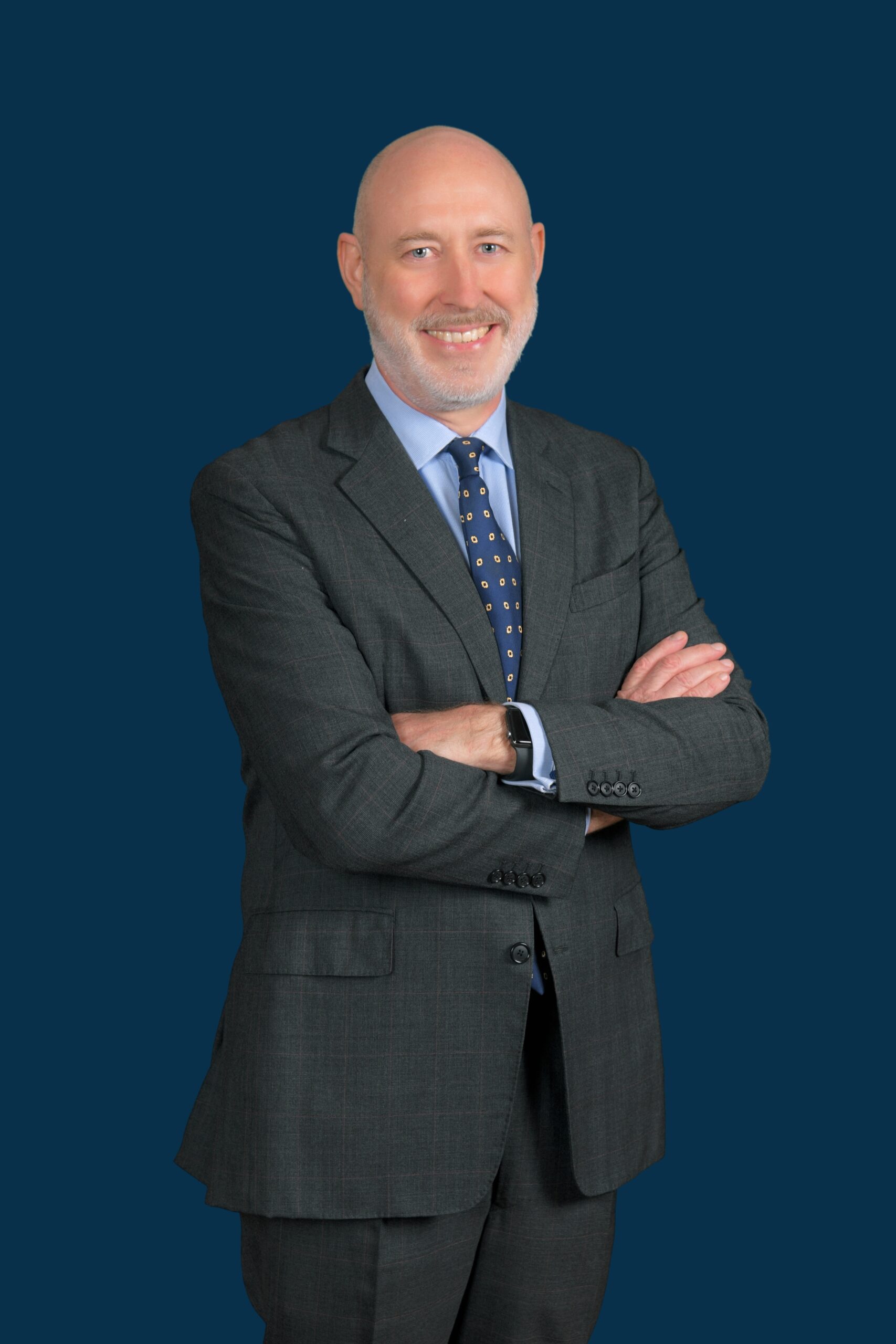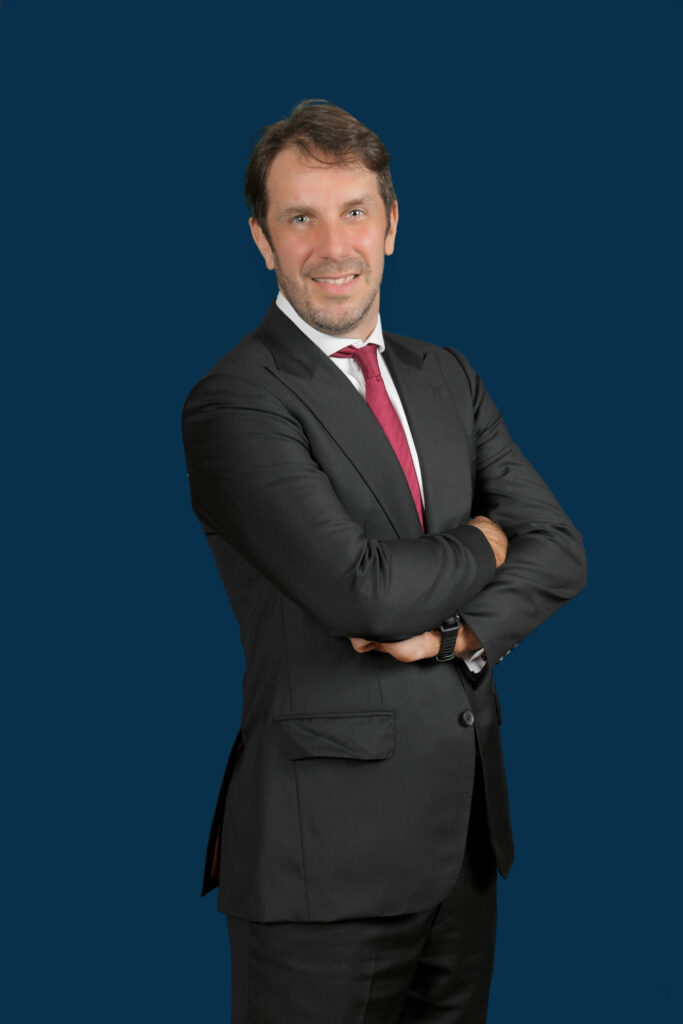Maritime is home to a diverse group of sectors—maritime law being a key pillar in this ecosystem. Commonly perceived as a “dull” industry, the Singapore Maritime Foundation (SMF) seeks to address these misconceptions.
Jonathan Choo is a Partner at Allen and Gledhill LLP where he specialises in non-contentious shipping issues. With his recent appointment as the International Maritime Organisation’s (IMO) Goodwill Ambassador, Jonathan shares on his maritime journey, the industry’s developments and why it is so special to him.
My encounter with maritime law was purely fortuitous. I did not take any maritime law modules in law school. Back then, my focus was on general and commercial litigation. In fact, I started as a litigation pupil upon graduation, but decided to switch to ship finance during my pupillage.
I was fortunate that there was an opening at the ship finance practice at Allen & Gledhill LLP. My mentor, Gina Lee-Wan, interviewed me for the position before accepting me as her mentee. The interview lasted three hours, during which Gina shared her views on the maritime industry and cited examples of the many legal transactions she was involved in. That interview was probably my first encounter with maritime law. In fact, it was Gina’s passion for the maritime industry and maritime law during the interview that made me take the leap of faith into the practice of ship finance.
As with many other legal practices, the learning curve was particularly steep at the beginning. Fortunately, I was able to acclimatise to the demands of practice largely due to Gina’s guidance and mentorship as well as the support of my colleagues who were always ready to help me when required during my early years of practice.
Whilst, it would definitely have helped if I had taken relevant maritime modules or done maritime focused internships during law school, I do not think that this is an absolute requirement to join a maritime practice. Therefore, students who, like me, did not do any maritime modules during law school should not be discouraged from considering or pursuing a career in maritime law.
My first impression was formed from an article by a maritime lawyer I read in school, recounting his ship arrest experience and how he almost fell into the sea while boarding the ship. This led to the impression that the practice of maritime law requires one to frequently arrest ships at high seas and deal with unfriendly crew, making it a potentially dangerous job.
This impression has since changed; the practice of maritime law is not confined purely to arrest work. The practice of maritime law encompasses a wide range of disciplines and specialisation, such as wet work, dry work, trade, insurance, enforcement work and finance. In addition, as maritime industry specialists, maritime practitioners may from time to time be required to advise or assist with restructuring and insolvency transactions or mergers and acquisitions transactions, where their nuanced maritime views are required. Also, I have since assisted with the arrest of a ship and the process of boarding a ship is nowhere near as dangerous as I had previously imagined.
As a ship finance lawyer, my primary focus and job scope is financing work in the maritime space. This includes shipping loans or other alternative financing structures such as finance leases, and the restructuring of such financings. Apart from that, I often assist my colleagues from the other practices in transactions where specialised ship finance or drafting input is required.
The initial challenges when I first started out would be the steep learning curve. Apart from having to quickly upskill, having to quickly understand the various cultural nuances of our international clients was quite a challenge as well – this is necessary to effectively write and communicate with them.
The other challenges include the compressed timelines for transactions and the ever-evolving regulatory issues that impact the maritime industry, such as the green regulations and digitalisation. Whilst a challenge, the constant need to keep abreast with such new issues makes practising maritime law interesting.
Based on my recent interactions with students and interns, it would appear that the prevailing preference is towards practice areas such as Mergers & Acquisitions, Capital Markets, General Banking, Commercial Litigation and Fintech. Some students have raised concerns that the practice of maritime law is too specialised and therefore limiting their future opportunities and options. If I recall correctly, these are the same concerns many of my peers had when we were in law school.
However, the establishment of the Centre for Maritime Law (CML) by the Maritime and Port Authority of Singapore (MPA) and the National University of Singapore (NUS) Faculty of Law should increase the visibility of maritime law amongst law students, and I believe that the CML has organised events aimed to provide law students greater exposure and understanding of the practice of maritime law. For example, the CML organises annual student engagements where maritime law practitioners would be invited to NUS Faculty of Law to share their experience with the law students. Such engagements should provide the law students better insights as to the practice of maritime law and hopefully interest law students in considering practising maritime law.
The Singapore Shipping Association (SSA) represents a diverse membership of maritime stakeholders, consisting of ship owners, financial institutions, maritime service providers and professionals. The Young Executives Group (YEG) is a platform for young executives of the SSA members who are below the age of 45 to network and share maritime insights. The YEG Committee is tasked with the responsibility of organising educational, community and networking events for and on behalf of the YEG and as the Treasurer and Vice Chairman of the YEG Committee, my role would be to ensure the proper budgeting of each event organised by the YEG Committee as well as assist with the planning and execution of the various YEG initiatives and events.
Having the opportunity to serve as a member of the YEG Committee has afforded me deeper insights to the maritime sector beyond maritime law and more importantly a chance to work with various YEG Committee members from diverse maritime backgrounds, many of whom have since become my close friends in the industry and whom I am proud to have the privilege to work alongside.
First, I would like to express my gratitude to the SSA for their support and their strong recommendation to the Singapore Government for my appointment as an IMO Goodwill Maritime Ambassador for Singapore.
The role as an IMO Goodwill Maritime Ambassador requires me to act as an advocate for maritime and seafaring professions by championing the maritime sector and promoting its opportunities. This would include reaching out to young professionals and students. To do so, we would need to work closely with the MPA, the Singapore Maritime Foundation as well as the SSA.
The practice of maritime law in Singapore would need to adapt in tandem with the development of the maritime sector in Singapore. Singapore has consistently been ranked as the world’s top maritime centre and there are many exciting developments in the maritime sector in Singapore, such as, to name a few, the push for digitalisation, the rolling out of green initiatives and regulations to regulate the emission of greenhouse gases and in response thereto the increase in green and sustainable financings, and advancing of Singapore’s standing as an Asian insurance hub.
These developments present opportunities for maritime law practitioners to explore new areas of practice. Law students should therefore keep an open mind towards the practice of maritime law and not have fixed misconceptions that the practice of maritime law is too specialised and will limit their future options or that the maritime industry in general is a sunset industry. I would encourage them to take up maritime law internships and experience first-hand the practice of maritime law. This may change any preconceived opinions they may have.
On a personal note, the maritime industry, its opportunities and most importantly, its people have been instrumental in my personal and career development the past 14 years. The international nature of shipping has expanded my worldview and provided me greater insights and appreciation towards other nationalities and cultures; the constant developments and regulatory changes provide me with the opportunity to improve, expand and hone my legal knowledge and skillset; and the opportunity to serve the industry as the Vice-Chairman and Treasurer of the SSA YEG as well as the IMO Goodwill Maritime Ambassador exposes me to issues and thought processes beyond legal issues as well as the chance to develop my leadership skills. I am therefore fortunate and grateful to have embarked on this journey as a ship finance lawyer.

